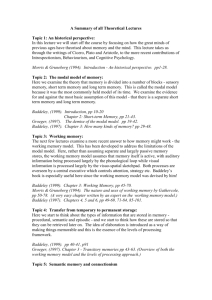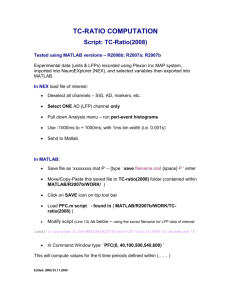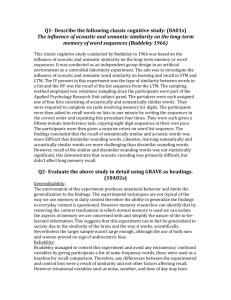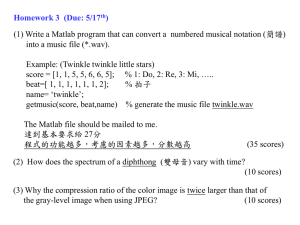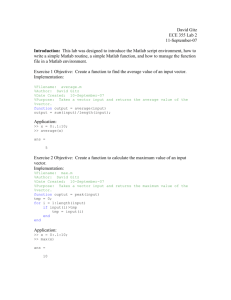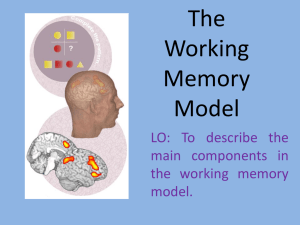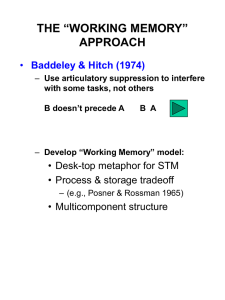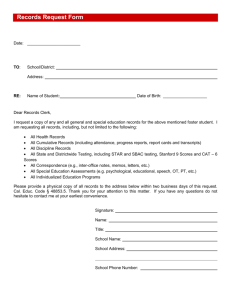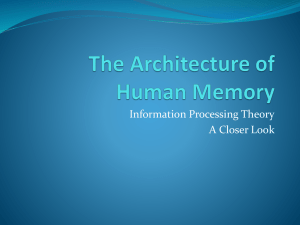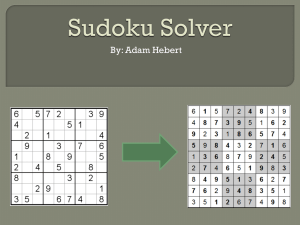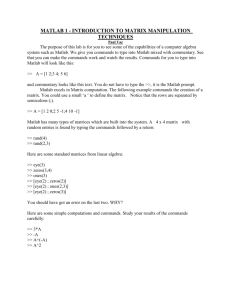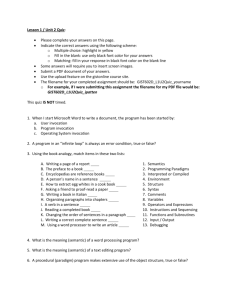handout - Tom Stafford
advertisement
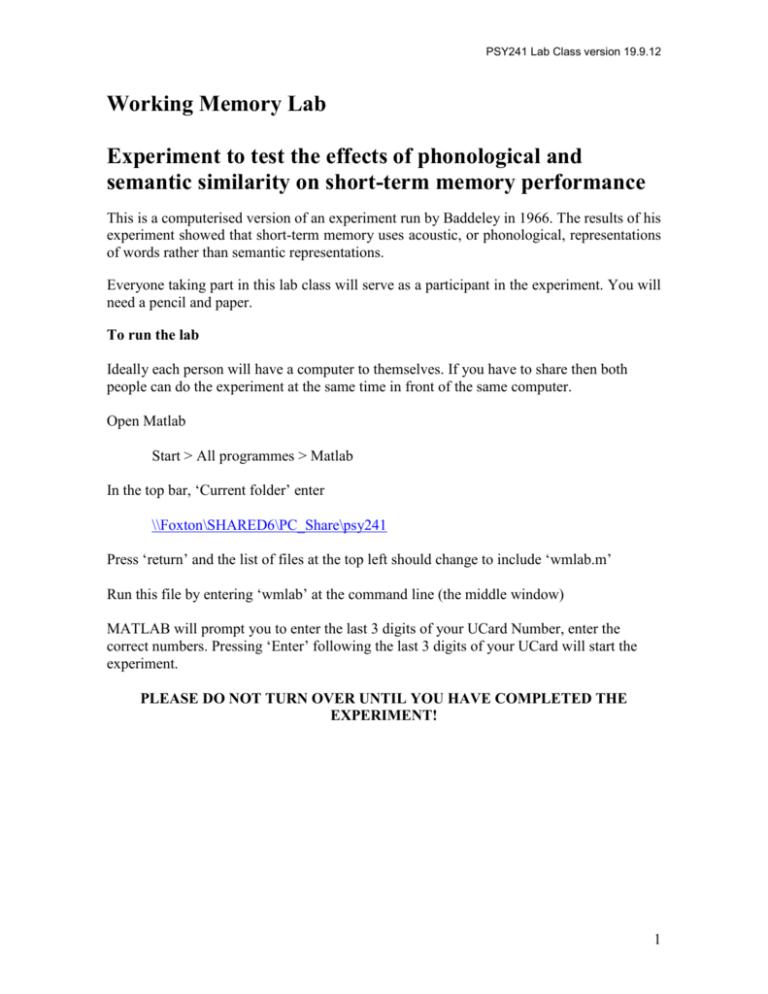
PSY241 Lab Class version 19.9.12 Working Memory Lab Experiment to test the effects of phonological and semantic similarity on short-term memory performance This is a computerised version of an experiment run by Baddeley in 1966. The results of his experiment showed that short-term memory uses acoustic, or phonological, representations of words rather than semantic representations. Everyone taking part in this lab class will serve as a participant in the experiment. You will need a pencil and paper. To run the lab Ideally each person will have a computer to themselves. If you have to share then both people can do the experiment at the same time in front of the same computer. Open Matlab Start > All programmes > Matlab In the top bar, ‘Current folder’ enter \\Foxton\SHARED6\PC_Share\psy241 Press ‘return’ and the list of files at the top left should change to include ‘wmlab.m’ Run this file by entering ‘wmlab’ at the command line (the middle window) MATLAB will prompt you to enter the last 3 digits of your UCard Number, enter the correct numbers. Pressing ‘Enter’ following the last 3 digits of your UCard will start the experiment. PLEASE DO NOT TURN OVER UNTIL YOU HAVE COMPLETED THE EXPERIMENT! 1 PSY241 Lab Class version 19.9.12 When you have completed the experiment Count how many word lists you got correct in each condition (maximum possible = 12). If you get any of the words wrong, or the order, this counts as incorrect recall. The conditions were: Dissimilar: with the words cow, day, bar, few, hot, pen, sup, pit Similar meaning: with the words big, long, broad, great, high, tall, large, wide Similar sound: with the words mad, man, mat, map, cad, can, cat, cap Take your scores and enter them into the group spreadsheet on google docs (you will be emailed a link, or search for PSY241 Working Memory Lab). Remember to put each score in the correct category! When the scores from your session have been entered, copy the scores into an SPSS worksheet for analysis. Writing up We do not require a full write up for this lab class. Rather, we want to focus on reporting data and statistical analyses. Please analyse the data and report them, using the conventional format that you will read in journal papers and that you will be told about in your lecture on reporting research. Remember to report descriptive statistics and formal analyses. Say what data were recorded, which statistical tests you carried out on them. Draw a table or graph to illustrate the results. Write a brief concluding statement to say what the results mean. You should submit this lab report by noon on Friday of week 5 Please email your report to afread1@sheffield.ac.uk. Put <PSY241 lab> as the subject heading. Please make sure your report has the extension ‘.doc’ when you save it- this prevents any problems when emailing. Do not write anything in the body of the email. Attach your report as a Word file. Use your surname, first initial as the filename, otherwise we will receive 190 or so reports with the same filename. Remember to put your name and email address on your report. Your report will be marked and returned to you by email. The mark does not contribute to your final grade on the course, so treat this as an opportunity to practise your report writing skills and get helpful feedback. Late reports will not be marked. Reading Baddeley, A. D. (1997) Human Memory, pp. 40-42 Baddeley, A. D. (1966) Short-term memory for word sequences as a function of acoustic, semantic and formal similarity, Quarterly Journal of Experimental Psychology, 18, 362-365. 2
